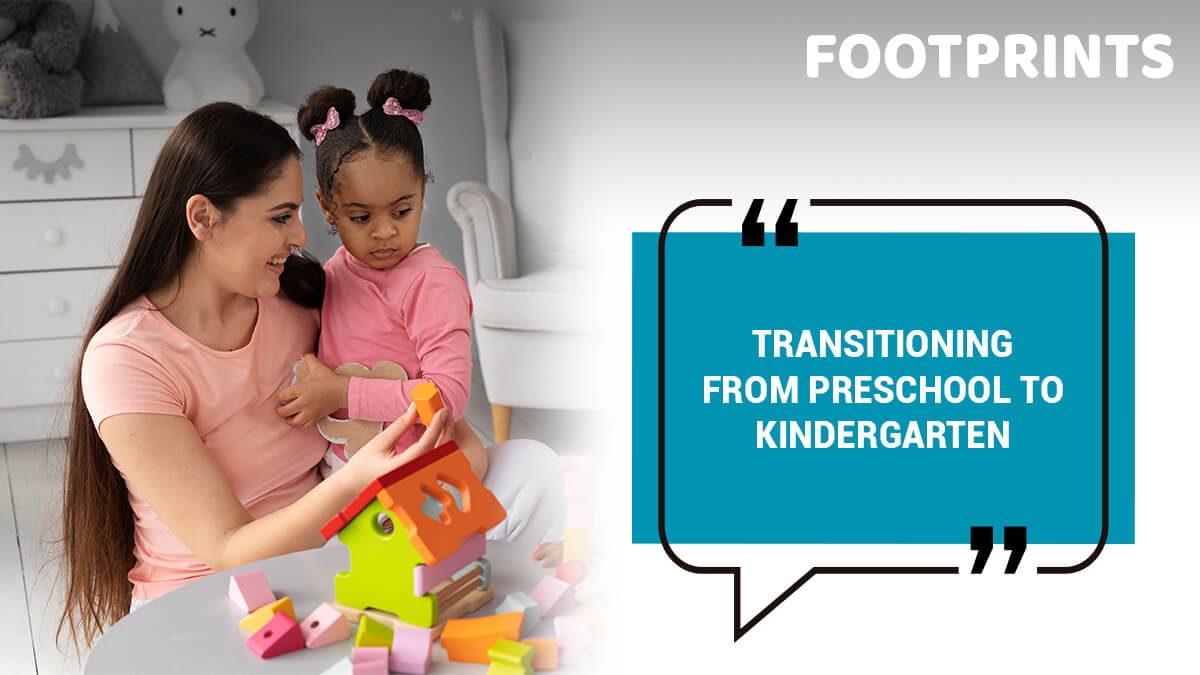
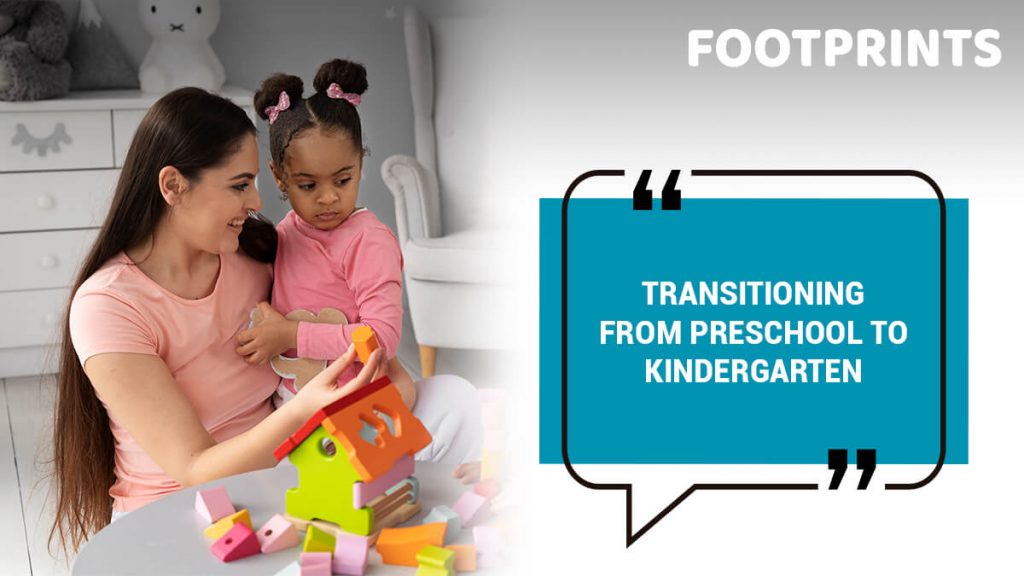
Transitioning from preschool to kindergarten is an important life event. As parents, odds are that you are feeling both excited and nervous, at the prospect of the child making a transition to “big school.” Preschool children too may be both excited and a tad bit worried. The same goes for teachers who want to make sure that their outgoing students are ready for the transition. Here are some handy tips that will help soothe those frayed nerves & ensure that the transition is as seamless as possible.
1. Ease the child’s fears
It is important to try to identify if the child has any concerns about making the transition & to allay those fears. Having an open-ended conversation will help you unearth issues. The child could be worried about making new friends, maybe witnessing separation anxiety, and more. Depending on the fears, offer the child the necessary succor. You could also allay fears by talking about how the drop-off & pick-up will take place. A well-informed child is less likely to fear these issues.
What is important is to acknowledge the child’s feelings instead of wishing them away. In fact, you could also share your own stories of kindergarten and the mixed feelings you had while making the transition.
2. Build a bridge
Before taking the leap, it will help the child if you could familiarise them with what is to come. It will be a good idea to visit the school so that the child is familiar with the setting. If possible, meeting the teacher in advance or getting a class list & setting up some play dates will ease the process.
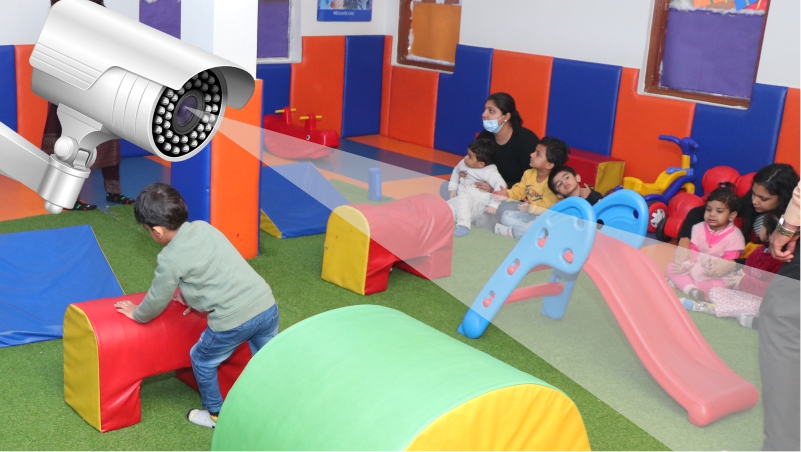
3. Encourage Independence
Teaching the child seemingly small steps such as washing hands before eating, wearing their own clothes, zipping up a jacket & more go a long way in filling the child with much-needed confidence. At Footprints Preschool, we follow a scientifically developed curriculum that lays due emphasis on active participatory learning. The HighScope Curriculum is a comprehensive model that addresses all areas of development through six content areas and 42 key developmental indicators. A key aspect is that the child is encouraged to move to the next level with adult scaffolding. Teachers use these aspects to build a sense of independence in the child and to ensure his or her holistic development, which goes a long way in making the transition from preschool to kindergarten smooth.
4. Start the school routine early
Make sure you start with the new routine that the child will need to adjust to, early. Ensure the child goes to bed early & is sufficiently rested to tackle the longer hours at kindergarten. Having a soothing and predictable bedtime routine also goes a long way in comforting the child.
Once school begins, it is very important to ensure you have everything in order including the dress that the child will wear or the breakfast he will eat the next morning, the night before. It is best to consult the child & offer him choices. Getting into a power struggle just before you need to send them to school, may not be the best way forward. Ensuring their backpack is ready the night before & you have had a discussion on what lunch they will carry, will make sure that there aren’t any surprises in the morning.
On the day of school, if there is one routine that is extremely important, it is the goodbye routine. In hugging & waving at the child, be sure to reassure him or her that you will be there at the designated hour to pick them up. Ensure that you remain positive around the child and not pass on your fears & anxiety.
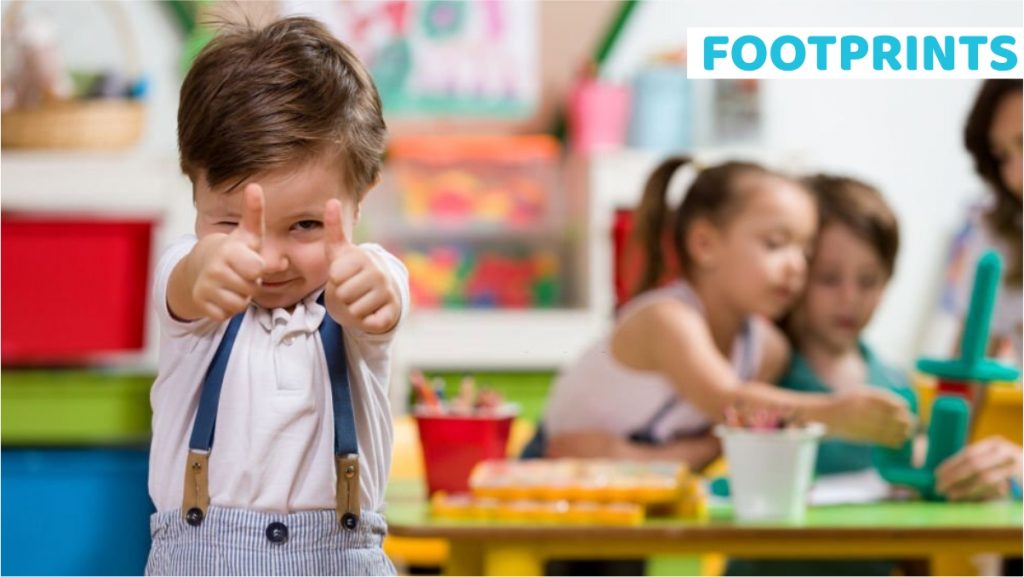
5. Celebrate small successes
It will help to celebrate small successes as the child navigates their journey from preschool to kindergarten. Be sure to encourage the process while stopping yourself from looking for perfection. Ensure you spend time with the child asking about their day. Instead of asking questions like how many friends they made in the early days, it will help to tell them how proud you are of the way they sat on the bus, for example. Looking at the drawings they made in school, or any other activities that they pursued can also be a good way to encourage them in their journey.
If the child shares any fears while recounting his or her day, do remind the child that it’s okay to be afraid and that it will get better with every passing day. Pro tip- Play therapy can go a long way in addressing the child’s fears. You could have some toys experience a transition & while indulging in pretend play also offer some coping strategies. Needless to say that if any of the child’s fear merit a discussion with the child’s teacher, make sure you do it.
6. Manage Expectations
It is important to remember that despite your best efforts & preparations, some amount of stress is to be expected. In all of this, remember to work on your own mental health as well. Not only will it help you remain calm through the transition, but your positive vibes will also pass on to the child.
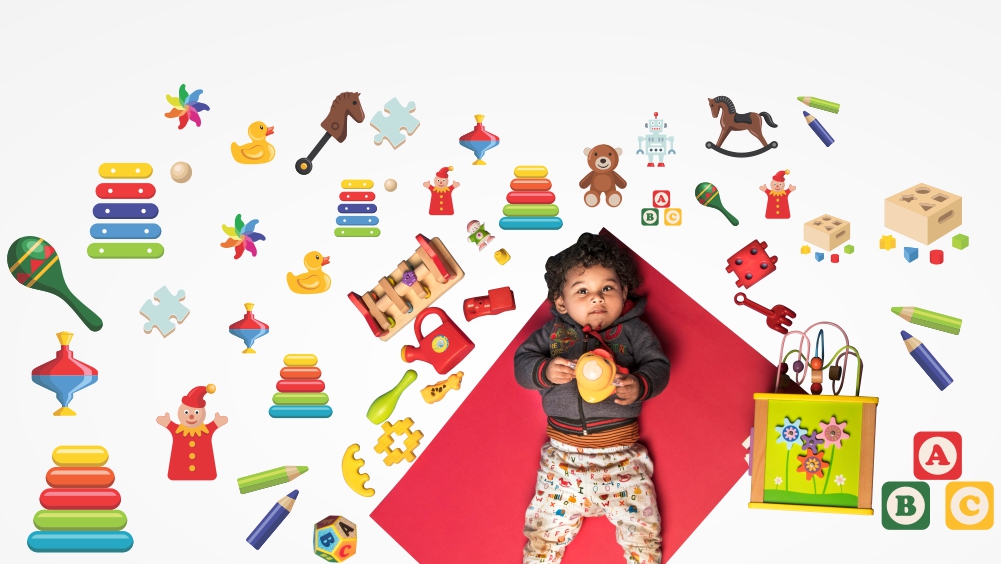
Teacher toolkit
Preschool teachers play a very important role in the transition process in more ways than one. It is important for teachers to recognize that school readiness spans a number of factors including the child’s physical development, social & emotional development, language & communication skills, and cognitive learning. Social skills, particularly, are an important marker when it comes to the child’s adjustment to a new environment. Some of the aspects that teachers particularly need to focus on include- play behavior & ability to enter playgroups, as well as communication skills. Behaviors such as not wanting to share, being unwilling to take turns, rough play, and more, can significantly impact the child’s acceptance in a new setting. It stands to reason that peers are more inclined towards welcoming children who are cooperative than ones who ride roughshod over others.
Overall, with preschool teachers focussing on the holistic development of young students, the transition from preschool to kindergarten for them becomes that much easier. Above everything, teachers need to imbue the child with a deep sense of curiosity that will make them learners for life!

Amita is an experienced educator with over 30 years of experience. She has an outstanding understanding of child development, having worked with various age groups for prestigious businesses. She has been dedicated to handling Footprints’s Curriculum and Delivery department for the past decade. Amita’s credentials include being one of India’s few HighScope Curriculum certified trainers and volunteering as a course leader for Landmark Education, the world’s largest training firm.

